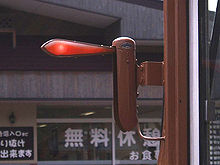Pros and Cons of Run Flat Tyres
 These days we are all looking to save money in whatever we do and nothing is truer than when it comes to looking after your motor vehicle. Regular car servicing is the only sure-fire way we know to keep our vehicles in good shape because it means reliability and reduced costs for expensive problems which can emerge if the vehicle is not properly maintained.
These days we are all looking to save money in whatever we do and nothing is truer than when it comes to looking after your motor vehicle. Regular car servicing is the only sure-fire way we know to keep our vehicles in good shape because it means reliability and reduced costs for expensive problems which can emerge if the vehicle is not properly maintained.
One of the more recent innovations from some prestige car manufacturers has been the installation of run flat tyres on some model vehicles. Basically, a run flat tyre gives the owner the flexibility of driving after the tyre has been punctured without any effect on driving capacity and affording you sufficient time to visit the service station to have repairs completed.
The trouble is, experiences with the tyres can tell a far different story and here we are going to look at the pros and cons of using run flat tyres.
First of all the pros.
If you are driving your vehicle at high speed on the freeway and suffer a blowout it can be an extremely dangerous situation. But if you have run flat tyres fitted the vehicle will maintain its stands and you will be able to drive safely for at least 100 km or more to a service station where you can have the tyre repaired.
Having a run flat tyre eliminates the need for carrying spares and this not only decreases costs when it comes to tyre replacement but also gives you more room for luggage etc.
Technology is improving all the time and subsequent purchases of run flat tyres may mean extra savings as the driving distance and longevity improves.
Now, the cons. Driver experience has exposed many weaknesses when it comes to run flat tyres here are a few.
Many drivers have found that after suffering a blowout and travelling 50 or so kilometres to a service station, they are faced with the possibility of having to replace the entire tyre as repairs are difficult to effect.
Driving on a run flat tyre for about 100 km, as recommended by the manufacturers, may result in damage to the wheel rim meaning the wheel has to be replaced as well as the tyre. This makes the tyre excessively expensive and has been roundly criticised by many motoring associations.
Some drivers have reported that the limited driving distance once the tyre has suffered a blowout is insufficient to get them to a service station where they can have repairs made. This means the car has to be towed.
The expense alone can make the fitting of run flat tyres an expensive option in itself. With a shortened lifespan of around 20,000 to 40,000 km this has resulted in a huge expense for drivers for very little benefit.
As you can see it will be a difficult decision when it comes to deciding whether you should have run flat tyres fitted on your next vehicle. People believe car service and repairs are expensive enough, but run flat tyres may add to motor vehicle maintenance costs so you need to be careful before you make a decision.







